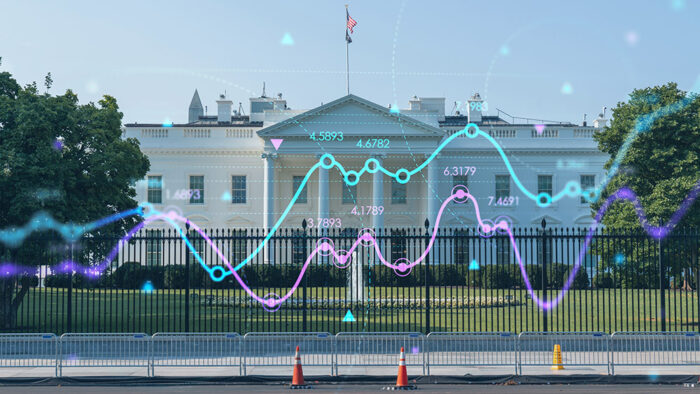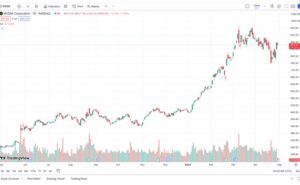By: Andy Blocker & Jennifer Flitton
Key takeaways
A bipartisan summer
This summer, Congress stacked up bipartisan accomplishments in infrastructure, energy, gun safety, veteran health care, advanced manufacturing, and foreign affairs.
A common bond
These achievements had several traits in common. For one, the consequences of inaction outweighed the potential pushback against action.
A new norm?
Does this recent bipartisanship represent a new norm in Washington? The answer is probably no, for several reasons.
As Congress returned from its traditional August recess, some members and staff might have been asking themselves if the onslaught of legislation that President Joe Biden signed into law over the past few months was all a dream.
But the reality is that Congress stacked up several legislative victories this summer that had eluded Congress for years, including bipartisan accomplishments in infrastructure, energy, gun safety, veteran health care, advanced manufacturing, and foreign affairs, to name a few.
This win-streak was not the norm in the first year of Biden’s presidency as he tried to reconcile with a divided nation, address the pandemic, and satisfy a thirsty Democratic base that was demanding immediate results on campaign pledges — issues that did not produce an environment ripe for bipartisan success. But behind the scenes, the ground was being tilled by members of both parties who wanted to deliver results for their various constituencies.
The logjam finally broke with passage of the mega highway bill — the Infrastructure Investment and Jobs Act (IIJA) — on Nov. 15, 2021. The IIJA proved to some members that when they focused on areas of agreement and needs of the country, they could deliver bipartisan wins. Using that successful model, Congress went on to pass the:
- Bipartisan Safer Communities Act
- PACT (Promise to Address Comprehensive Toxics) Act
- CHIPS and Science Act of 2022
- Inclusion of Finland and Sweden in NATO
What made these legislative victories possible?
- All of them had strong political constituencies pushing for action. For example, IIJA united the business community, the labor force, and local elected officials around the strong belief that this legislation was good for investment, jobs, and infrastructure, and that it provided solutions to everyday challenges facing Americans.
- The consequences of inaction outweighed the potential pushback against action. In the wake of the tragic shootings in Buffalo, New York, and Uvalde, Texas, Congress was forced to recognize that something had to be done. With the historic Bipartisan Safer Communities Act, members answered society’s call to address gun violence. Similarly, the path to success for the CHIPS and Science Act of 2022 was long, but the motivation for the bill never ceased. The COVID pandemic and geopolitical realities reinforced the need to onshore US chip manufacturing to create a more stable and durable supply chain for all technologies. Failure to act presented a national security risk that many members were unwilling to accept. Likewise, defeat on the PACT Act was not a plausible outcome as both parties recognized the need to step up and finally address veteran health care needs.
- Buy-in from key members of Congress encouraged others to come to the table if a good deal was to be had. This included Senate Majority Leader Chuck Schumer (D-NY), Minority Leader Mitch McConnell (R-KY), and several retiring members of Congress who collectively played an outsized role in finding the necessary votes to pass these pieces of legislation. The retirement of several Senators and Representatives freed them from focusing on their next election and allowed them to dive into the policies within each piece of legislation and truly assess what they meant for the country. On the flip side, members in purple states such as Arizona, Nevada, and New Hampshire had to be more nimble and find the path to yes as they sought voter confidence leading up to their reelection this November.
- Favorable polling suggested a safe space for legislating. Voters support safer communities, better roads, modern manufacturing, and US competitiveness by wide margins, which further enabled members to find agreement on legislation.
A new norm? Probably not.
So does this recent bipartisanship represent a new norm in Washington? The answer is probably no, for several reasons:
- Keep in mind, both the IIJA and the CHIPS and Science Act passed under the assumption — and condition — that the president’s Build Back Better reconciliation bill (in whatever iteration it found itself at the time) was dead in the water.
- In addition, this is an election year, and Republicans are chomping at the bit to flip control of the House and maybe the Senate. If this happens, Republicans will likely emphasize intense oversight of the Biden administration to demonstrate their divergence from Biden’s policies and their legislative trajectory.
- Further down the road but quickly approaching, the presidential election in 2024 will also draw lines in the sand as both parties look to cement their brand and cater to their respective bases of support.
As the country warmly embraces the return of football season, there will be plenty of upsets and longshot winners. It’s a fitting reminder that despite what the experts think, outcomes are never as solidified as they predict. This is exactly what Congress demonstrated the past few months. Many of the bills that passed appeared dead but were reconstructed many times until Republicans and Democrats were able to perfect the play and carry the ball across the goal line to be signed into law.
—
Originally Posted October 3, 2022
Outbreak of bipartisanship: Constructive but likely short-lived by Invesco US
With contributions from Cogent Strategies. Cogent Strategies is a bipartisan team of top-ranked government relations and strategic communications professionals committed to one goal: leveraging their unique talents, energy and experience to advance client agendas. Led by a veteran political strategist, Founder and CEO Kimberley Fritts, the Cogent team has deep experience crafting and executing fully-integrated, custom, and data-driven initiatives. Cogent Strategies marries policy substance with incisive storytelling – leveraging government expertise, public relations smarts, and digital savvy to deliver results for clients. Invesco is not affiliated with Cogent Strategies.
The opinions referenced above are those of the author as of Sept. 6, 2022. These comments should not be construed as recommendations, but as an illustration of broader themes. Forward-looking statements are not guarantees of future results. They involve risks, uncertainties and assumptions; there can be no assurance that actual results will not differ materially from expectations.
Disclosure: Invesco US
This does not constitute a recommendation of any investment strategy or product for a particular investor. Investors should consult a financial advisor/financial consultant before making any investment decisions. Invesco does not provide tax advice. The tax information contained herein is general and is not exhaustive by nature. Federal and state tax laws are complex and constantly changing. Investors should always consult their own legal or tax professional for information concerning their individual situation. The opinions expressed are those of the authors, are based on current market conditions and are subject to change without notice. These opinions may differ from those of other Invesco investment professionals.
NOT FDIC INSURED
MAY LOSE VALUE
NO BANK GUARANTEE
All data provided by Invesco unless otherwise noted.
Invesco Distributors, Inc. is the US distributor for Invesco Ltd.’s Retail Products and Collective Trust Funds. Institutional Separate Accounts and Separately Managed Accounts are offered by affiliated investment advisers, which provide investment advisory services and do not sell securities. These firms, like Invesco Distributors, Inc., are indirect, wholly owned subsidiaries of Invesco Ltd.
©2024 Invesco Ltd. All rights reserved.
Disclosure: Interactive Brokers
Information posted on IBKR Campus that is provided by third-parties does NOT constitute a recommendation that you should contract for the services of that third party. Third-party participants who contribute to IBKR Campus are independent of Interactive Brokers and Interactive Brokers does not make any representations or warranties concerning the services offered, their past or future performance, or the accuracy of the information provided by the third party. Past performance is no guarantee of future results.
This material is from Invesco US and is being posted with its permission. The views expressed in this material are solely those of the author and/or Invesco US and Interactive Brokers is not endorsing or recommending any investment or trading discussed in the material. This material is not and should not be construed as an offer to buy or sell any security. It should not be construed as research or investment advice or a recommendation to buy, sell or hold any security or commodity. This material does not and is not intended to take into account the particular financial conditions, investment objectives or requirements of individual customers. Before acting on this material, you should consider whether it is suitable for your particular circumstances and, as necessary, seek professional advice.

























